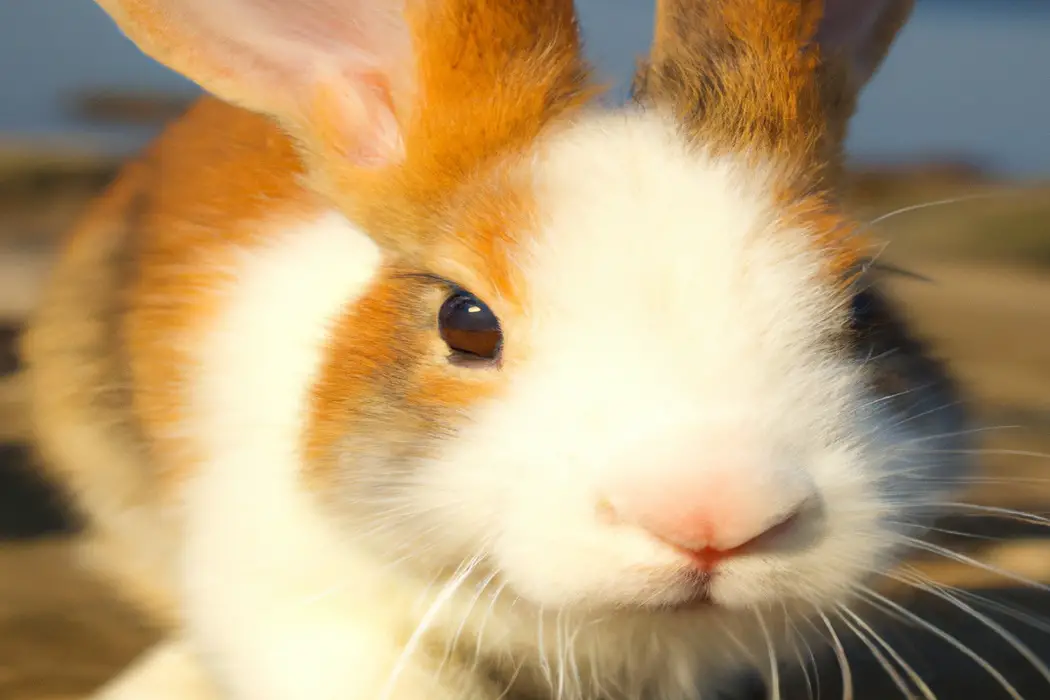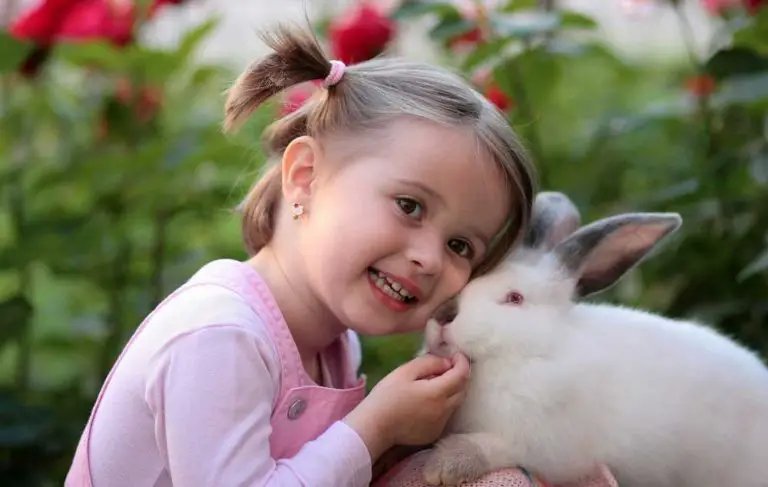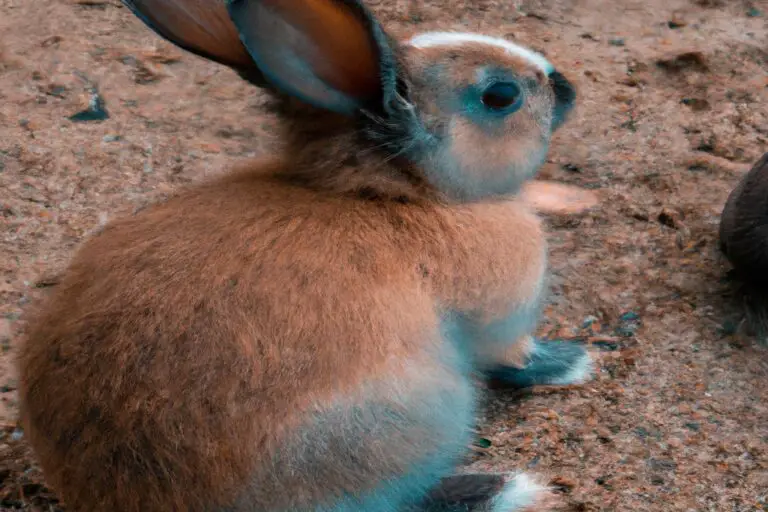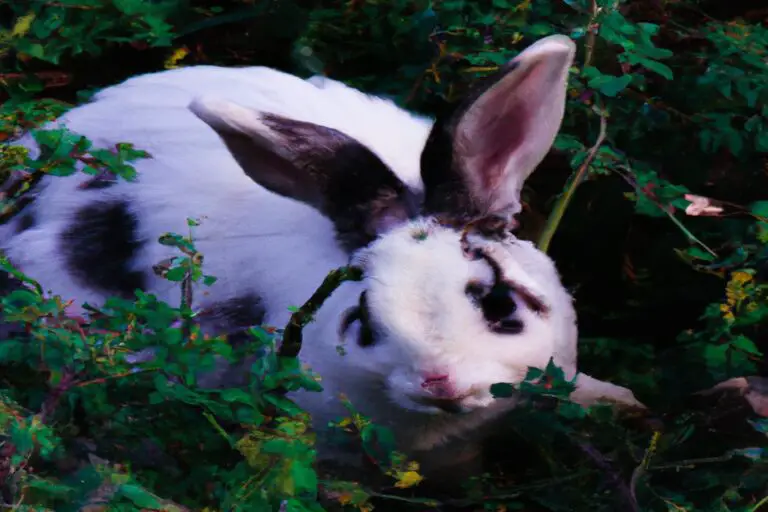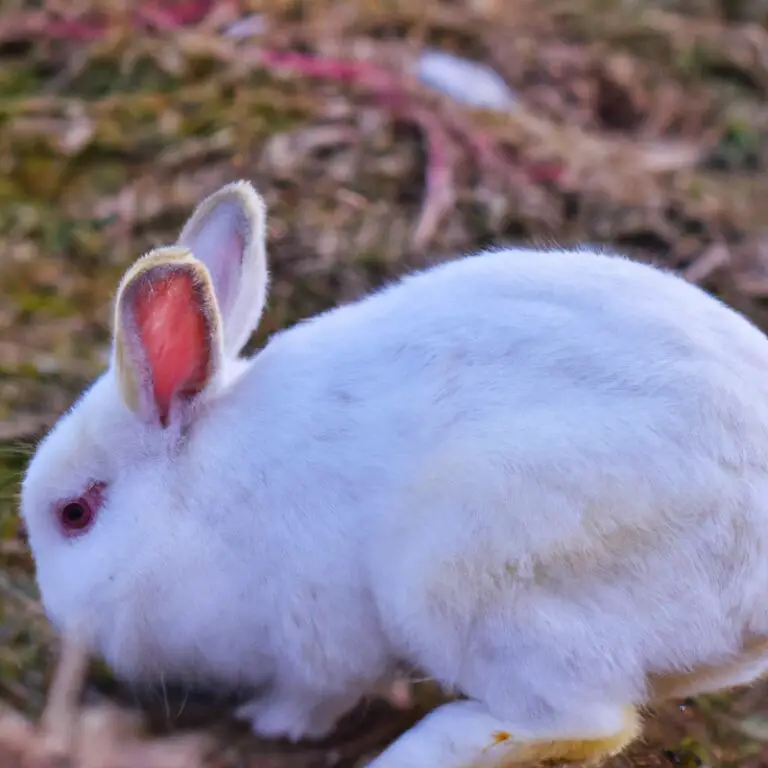Why Is My Rabbit Digging And Biting Me – Expert Advice!
Key Takeaways:
- Your rabbit may be digging and biting you as a natural instinct to mark territory and establish dominance.
- It is essential to provide your rabbit with appropriate outlets for digging and chewing, such as designated areas or toys, to redirect their behavior.
- Stress and discomfort can also cause rabbits to exhibit biting and digging behaviors, so ensure their environment is suitable and free from any potential triggers.
- Regular interaction, socialization, and positive reinforcement can help curb aggressive tendencies and foster a bond of trust between you and your rabbit.
Are you tired of feeling like a chew toy for your beloved bunny?
Does it seem like your furry friend has transformed into a miniature landscaper, digging up your entire living room?
And what about those occasional nips that leave you wondering, “Why is my rabbit biting me?” Well, fear not, because I’ve got all the answers you need! In this article, we’ll delve into the fascinating world of rabbit behavior, uncovering the reasons why they dig and bite.
We’ll also discuss whether these behaviors are normal and provide you with practical tips to address them effectively.
So, prepare to become an expert on all things bunny-related and regain the harmony with your fluffy companion!
Understanding Rabbit Behavior
Understanding Rabbit Behavior can help you address common issues like digging and biting.
Why Do Rabbits Dig?
Rabbits dig for various reasons:
- Instinct: Digging is a natural behavior for rabbits. In the wild, they dig burrows for shelter and protection.
- Comfort: Digging can create a cozy spot for a rabbit to rest or stay cool during hot weather.
- Territory marking: Rabbits may dig to mark their territory with scent glands on their chin and paws.
- Boredom: Some rabbits dig out of boredom, especially if they lack mental and physical stimulation.
- Nesting: Female rabbits may dig to create a nest for their babies.
To prevent excessive digging, provide your rabbit with plenty of toys, tunnels, and safe digging areas to satisfy their natural instincts.
Why Do Rabbits Bite?
Rabbits can sometimes bite for various reasons.
One common reason is fear or feeling threatened.
If a rabbit feels cornered or scared, it may react by biting to defend itself.
Another reason could be aggression or territorial behavior, especially during mating seasons.
Rabbits may also bite if they are in pain or feeling uncomfortable.
It’s important to understand your rabbit’s body language and provide a safe and comfortable environment to prevent biting.
Regular handling and positive reinforcement can help build trust and reduce the likelihood of biting.
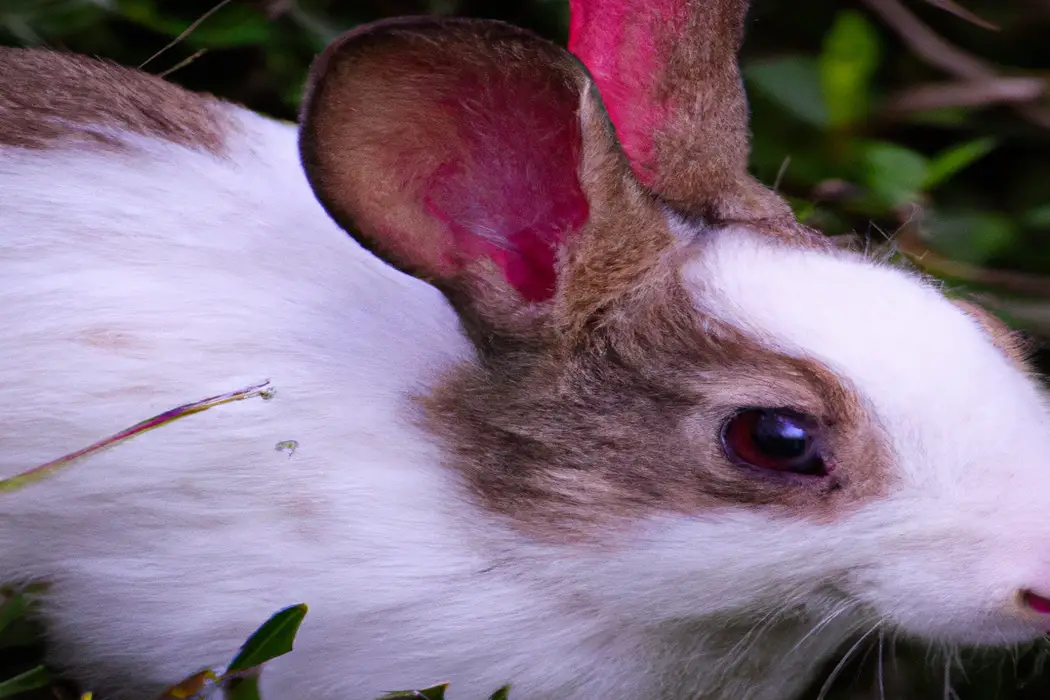
Is Rabbit Digging and Biting Behavior Normal?
Rabbit digging and biting behavior can be normal for rabbits.
Digging is a natural behavior for them as it helps them build burrows and find food.
Biting can also be a way for rabbits to communicate or show affection.
However, excessive digging or biting can indicate boredom, stress, or a health issue.
It’s important to observe your rabbit’s behavior and provide them with plenty of stimulation, such as toys and hiding places, to prevent unwanted digging and biting.
If the behavior persists or becomes aggressive, consult a veterinarian for further guidance.
How to Address Rabbit Digging and Biting Behavior
Addressing rabbit digging and biting behavior requires a combination of understanding and training.
- Provide appropriate outlets for digging, such as a designated digging area filled with soil or hay.
- Ensure the rabbit has plenty of mental stimulation and physical exercise to reduce boredom and frustration.
- Use positive reinforcement and reward-based training techniques to teach the rabbit alternative behaviors.
- Seek professional guidance or consult with an experienced rabbit behaviorist for personalized advice.
Remember, consistency and patience are key when addressing these behaviors.
Creating a Stimulating Environment for Your Rabbit
Creating a stimulating environment for your rabbit is essential for their overall well-being. Here are a few tips to ensure your furry friend stays happy and engaged:
- Provide ample space: Rabbits need plenty of room to hop and explore. A spacious enclosure or playpen will allow them to exercise and stretch their legs.
- Offer a variety of toys: Rabbits love to chew and play, so make sure to provide them with safe toys such as wooden chew sticks or puzzle toys that dispense treats.
- Enrich their surroundings: Add tunnels, ramps, and platforms to their habitat to create an interesting and stimulating environment. This will encourage your rabbit to exercise and keep them mentally stimulated.
- Incorporate hiding spots: Rabbits are naturally prey animals and like to have places to retreat to when they feel scared or overwhelmed. You can provide them with small huts or cardboard boxes to create cozy hiding spots.
- Rotate their toys and rearrange their environment: Changing up their toys and rearranging their enclosure every so often will keep things fresh and prevent boredom.
Remember to always supervise your rabbit during playtime and choose toys that are safe and suitable for their size and chewing habits. By creating a stimulating environment, you’ll help keep your rabbit happy, healthy, and entertained.
Proper Handling Techniques to Prevent Biting
When it comes to handling a rabbit to prevent biting, there are a few techniques you can use:
- Approach gently and calmly: Rabbits can be easily startled, so it’s important to approach them in a calm and gentle manner. Make sure to avoid sudden movements or loud noises.
- Support their weight: When you pick up a rabbit, make sure to support their entire body, including their hind legs. This will help them feel secure and reduce the chance of them biting out of fear.
- Avoid restraining too tightly: Rabbits can feel stressed and uncomfortable if they’re held too tightly. Allow them some freedom to move and explore within your grasp to prevent them from feeling trapped.
- Watch for warning signs: Rabbits typically give warning signs before they bite, such as growling, lunging, or thumping their hind legs. If you notice any of these behaviors, it’s best to give them some space and avoid handling them at that moment.
- Familiarize yourself with their body language: Understanding rabbit body language can help you anticipate their behavior and avoid situations that might lead to biting. Keep an eye out for signs of fear, stress, or aggression.
Addressing Potential Health Issues
Addressing Potential Health Issues: Observing any sudden changes in your rabbit’s behavior, such as decreased appetite, excessive scratching, or changes in bathroom habits, could indicate potential health issues.
Regularly checking for signs of dental problems, ear infections, and parasites is crucial to ensure your rabbit’s well-being.
A balanced diet, a clean living environment, and routine veterinary visits can help address and prevent potential health issues.
Final Verdict
Understanding rabbit behavior is key to addressing their digging and biting tendencies.
Rabbits dig to fulfill their natural instincts and create safe spaces, while biting can be a form of communication or defense.
While both behaviors are normal to some extent, excessive digging or biting may indicate underlying issues.
To address these behaviors, it is important to provide a stimulating environment, handle your rabbit properly, and address any potential health issues.
By taking these steps, you can foster a harmonious relationship with your furry friend and ensure their well-being.

